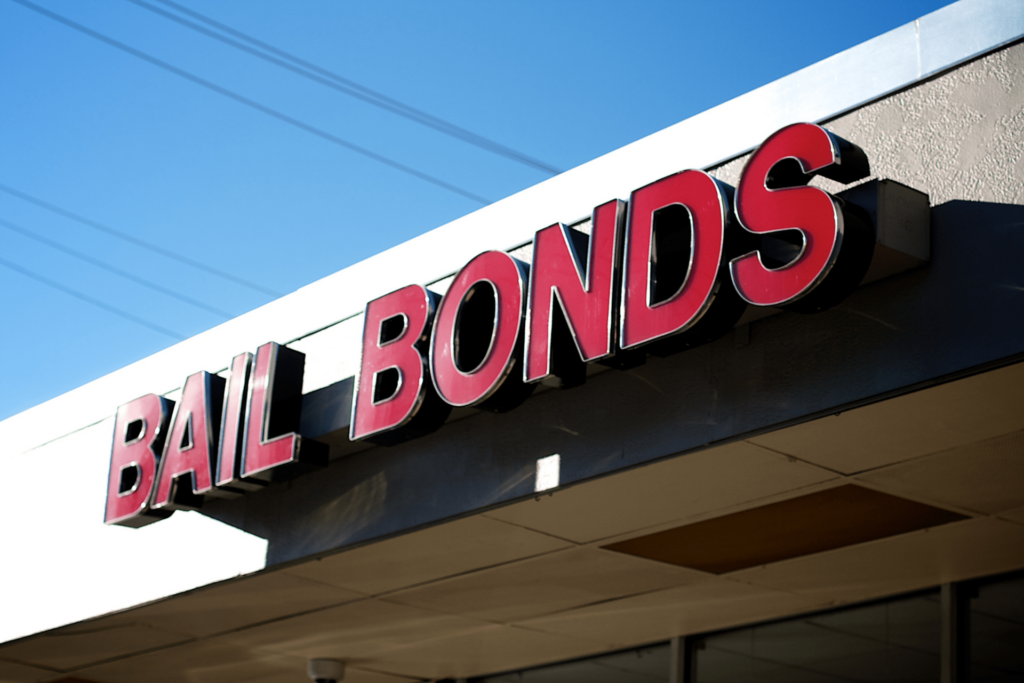Understanding the Legal Process Behind a non arrest bond
Wiki Article
Recognizing the Refine of Protecting a Bail Bond: What You Required to Know
Protecting a bail bond can be a complex procedure. It entails comprehending numerous aspects, from the kinds of bonds readily available to the connected expenses. Individuals commonly overlook important information that can affect their situation. The steps to get a bail bond need careful factor to consider and understanding of responsibilities. As the procedure unfolds, critical choices should be made that might affect the result considerably. What should one anticipate when traversing this tough landscape?What Is a Bail Bond?
A bail bond is a monetary arrangement that enables an arrested person to be released from guardianship while waiting for trial. This arrangement involves a 3rd party, generally a Bail bondsman, that assures the court that the individual will return for their set up court looks. For this service, the Bail bondsman usually bills a non-refundable charge, typically a portion of the complete Bail quantity.Bail bonds offer an important function in the legal system, supplying a device for defendants to maintain their flexibility during the pre-trial stage. This can aid them get ready for their protection better. The Bail quantity is determined by the court based on different factors, consisting of the severity of the offense, the defendant's criminal history, and the threat of trip. Ultimately, a bail bond represents a commitment to maintain lawful duties while permitting individuals the chance to proceed their daily lives till their court date.
Exactly How Bail Bonds Job
Bail bonds operate via a simple procedure that involves a number of essential actions. Initially, an accused or their depictive contacts a bail bond agent after an apprehension. The agent evaluates the circumstance, consisting of the Bail quantity set by the accused and the court's history. When a choice is made, the agent generally needs a non-refundable charge, usually a percent of the total Bail amount, often ranging from 10% to 15%.After the cost is paid, the agent secures the Bail by signing a contract with the court, making certain that the defendant stands for all scheduled court days. If the defendant stops working to show up, the bail bond representative is in charge of the full Bail amount, leading the agent to seek the accused. Throughout this process, the bail bond representative plays an essential function in promoting the release of the defendant while handling the connected economic threats.
Sorts Of Bail Bonds
Understanding the numerous kinds of Bail bonds is very important for offenders and their households as they browse the legal system. There are numerous typical sorts of Bail bonds available, each serving a details objective.The most prevalent is the surety bond, which includes a Bail bondsman assuring the full Bail quantity in exchange for a fee. Another kind is the cash bond, where the defendant or their family pays the full Bail amount in money directly to the court.
Home bonds enable people to make use of realty as security for the Bail quantity. In addition, federal bonds specify to government cases, often calling for a higher costs and a lot more strict problems.
Finally, immigration bonds are used in cases concerning migration violations. Each kind of bond has unique treatments and implications, making it crucial for those entailed to recognize their options thoroughly.
The Prices Involved in Safeguarding a Bail Bond
Safeguarding a bail bond involves numerous costs that can considerably affect an accused's funds. The principal expenditure is the costs, normally varying from 10% to 15% of the total Bail quantity established by the court. This premium is non-refundable, regardless of the instance end result, standing for the bail bond agent's charge for their solutions. Additional expenses might consist of administrative fees, which some representatives impose for handling documents, and security requirements, where the defendant may require to offer assets to secure the bond. In situations involving higher Bail amounts, the demand for security ends up being more pronounced. bail bonds. Defendants ought to be mindful of prospective expenses related to missed out on court days, which can lead to further financial fines. Understanding these costs is essential for offenders and their family members, as they can significantly influence the monetary burden connected with protecting a bail bond
The Process of Getting a Bail Bond
The process of acquiring a bail bond entails a series of organized steps that begin with the entry of an application. Candidates should likewise consider numerous repayment and security options that might be called for by the bail bond agency. Understanding these parts is crucial for steering via the bail bond system effectively.
Application Submission Tips
When people are well-informed, navigating the application submission actions for getting a bail bond can be simple. The initial action includes selecting a reliable bail bond company, which typically needs research and recommendations. As soon as a business is selected, the candidate needs to complete a bail bond application, giving essential information such as the offender's details, costs, and Bail quantity. Next off, the candidate may require to present recognition and any kind of pertinent paperwork to sustain the application. After submitting the application, the bail bond company will evaluate the info and analyze the threat involved. A rep will detail the terms and conditions before settling the arrangement if approved. This procedure, while organized, can differ slightly relying on the Bail and the jurisdiction bond company.
Repayment and Collateral Choices
When getting a bail bond, understanding payment and collateral alternatives is necessary, as these factors can considerably here influence the overall expense and terms of the arrangement. Typically, bail bond companies require a non-refundable fee, usually a portion of the overall Bail amount, which functions as their revenue. Some firms may provide versatile repayment strategies, permitting customers to pay in installations. Furthermore, collateral can be needed to secure the bond, which may include assets like building, lorries, or other belongings. The type and worth of security can affect the bond's approval and terms. Customers must very carefully examine their monetary situation and choices to guarantee they pick an option that lines up with their budget and situations.Responsibilities of the Indemnitor
Steering through the intricacies of Bail bonds requires a clear understanding of the duties of the indemnitor. The indemnitor, often a relative or friend of the offender, plays a substantial duty in the Bail procedure. This private consents to assume economic obligation, guaranteeing that the Bail quantity is paid if the defendant fails to show up in court. It is essential for the indemnitor to keep communication with the bail bond representative throughout the procedure, supplying any essential information and updates pertaining to the accused's circumstance.In addition, the indemnitor should safeguard collateral, which may consist of property or belongings, to back the bail bond. This security safeguards the bail bond firm versus potential losses - bail bonds. Must the offender stop working to abide with court requireds, the indemnitor faces the danger of shedding their security and may be held accountable for the whole Bail amount. Because of this, recognizing these obligations is crucial for the indemnitor's financial stability

Typical Myths Regarding Bail Bonds
Several people nurture misconceptions about Bail bonds, which can complicate their understanding of the Bail process. One prevalent myth is that Bail bonds are a type of repayment that assures an offender's release. Actually, they are an assurance to the court that the offender will certainly show up for their set up hearings. An additional usual belief is that only rich individuals can afford Bail. However, bondsman generally charge a percentage of the complete Bail quantity, making it easily accessible to a broader variety of people. Furthermore, some people think that Bail is refundable. While the costs paid to the bondsman is not refundable, the Bail amount itself might be returned upon the completion of the case, provided the offender satisfies all court requirements. Resolving these myths is important for individuals going across the complexities of the Bail system and guaranteeing they make informed choices.Often Asked Questions
Can I Safeguard a Bail Bond for Somebody in Another State?
Securing a bail bond for someone in an additional state is possible, yet it normally requires collaborating with a Bail bondsman accredited in that state - bail bonds. Each territory has specific regulations that have to be complied with throughout this processWhat Happens if the Offender Skips Bail?
If an accused misses Bail, a warrant is commonly issued for their arrest. The Bail bondsman might likewise go after recuperation efforts, which could entail working with bounty seekers to locate and nab the individual.Are Bail Bondsmen Regulated by the Government?
Bail bail bondsmans are certainly controlled by federal government authorities. Regulations differ by state, yet they typically need licensing, adherence to economic techniques, and conformity with laws to ensure reasonable therapy of defendants and their households.Can I Use Security Apart From Money?
Security apart from cash money can frequently be made use of for Bail bonds, depending on the bondsman's plans. Usual options include property, vehicles, or various other beneficial properties, which need to normally be assessed and agreed upon.What Is the Function of a Co-Signer in a Bail Bond?
The function of a co-signer in a bail bond is to assure payment if the defendant falls short to show up in court. This individual accepts financial obligation, making certain that the bail bond arrangement is promoted and enforceable.If the defendant fails to show up, the bail bond representative is accountable for the full Bail quantity, leading the representative to seek out the defendant. As soon as a business is chosen, the candidate has to complete a bail bond application, offering vital info such as the defendant's information, fees, and Bail quantity. Commonly, bail bond business need a non-refundable charge, normally a portion of the total Bail quantity, which serves as their earnings. Several individuals nurture misunderstandings regarding Bail bonds, which can complicate their understanding of the Bail process. Collateral various other than money can usually be used for Bail bonds, depending on the Bail bondsman's plans.
Report this wiki page